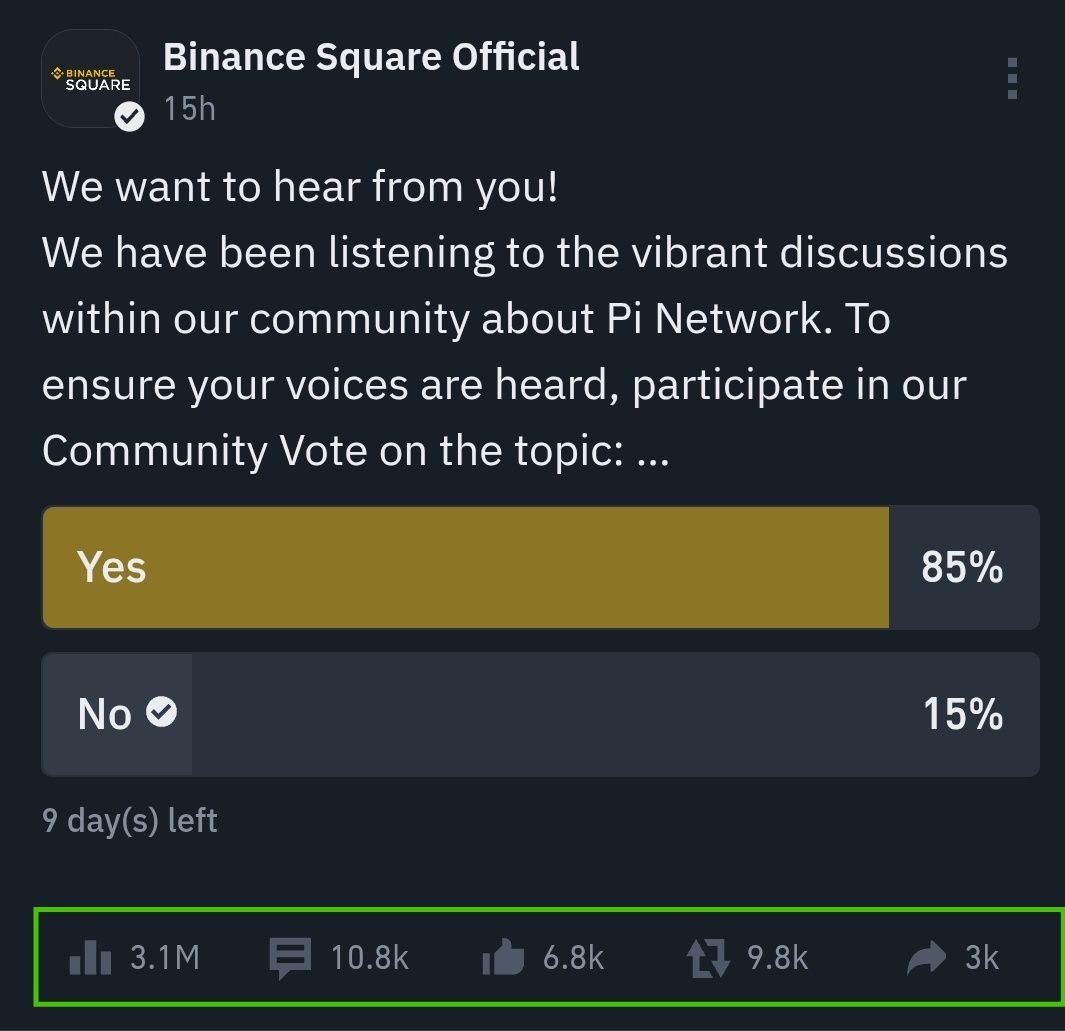Market
Binance Faces Backlash for Considering Pi Network Listing

Binance, the world’s largest cryptocurrency exchange, has drawn backlash after reopening its token listing by community vote and considering adding Pi Network (PI).
The decision has faced significant pushback, with critics questioning the platform’s priorities and highlighting the potential risks.
Pi Network Listing on Binance Sparks Concerns
BeInCrypto reported that on February 17, the exchange launched a Binance Community Vote for Pi Network. This marketing-driven polling event lets users voice their opinions on whether Pi should be listed on the exchange.
The voting for the Pi Network listing ends on February 27. Currently, 85% of voters support listing Pi, just one day before its mainnet launch. Moreover, the project has gained remarkable traction and visibility within the crypto community.

Despite the support, some users, including Colin Wu, founder of the Wu Blockchain, have not responded favorably to Binance’s decision. He expressed concerns about Binance’s decision to revive community-driven listings after a seven-year hiatus.
“I originally thought OKX was already playing it risky, but Binance took it even further with PI,” Wu said.
Wu argued that Binance’s focus on driving traffic and user registrations through high-risk tokens compromises its responsibility to maintain security and uphold its industry-leading reputation.
This isn’t the first time Binance has faced criticism for its listing process. Recently, the exchange’s former CEO, Changpeng Zhao (CZ), even called the process “a bit broken.” According to the latest data from CoinGecko, 398 coins are currently listed on Binance.
Meanwhile, Wu also cautioned that the decision to list Pi could pose significant risks to the “highly fragile Chinese-speaking community.”
“Binance has already become the infrastructure of this industry—it should focus more on security and reputation rather than chasing traffic,” he added.
Binance, however, defended its position by emphasizing that it would not consider all votes as valid.
“Votes from users reported in certain countries or regions, including but not limited to mainland China, will not be counted as valid,” the post read.
The statement clarified that any votes that fail to meet eligibility criteria, come from inapplicable regions, or violate the platform’s terms and conditions will be excluded from the final count.
It further highlighted that the platform considers the voting results for reference. An internal evaluation will determine the ultimate decision on listing Pi Network.
Apart from Binance, several centralized exchanges have announced Pi coin listings. Nonetheless, many industry experts remain skeptical of the Pi Network, highlighting the legal and listing risks associated with it.
Disclaimer
In adherence to the Trust Project guidelines, BeInCrypto is committed to unbiased, transparent reporting. This news article aims to provide accurate, timely information. However, readers are advised to verify facts independently and consult with a professional before making any decisions based on this content. Please note that our Terms and Conditions, Privacy Policy, and Disclaimers have been updated.












